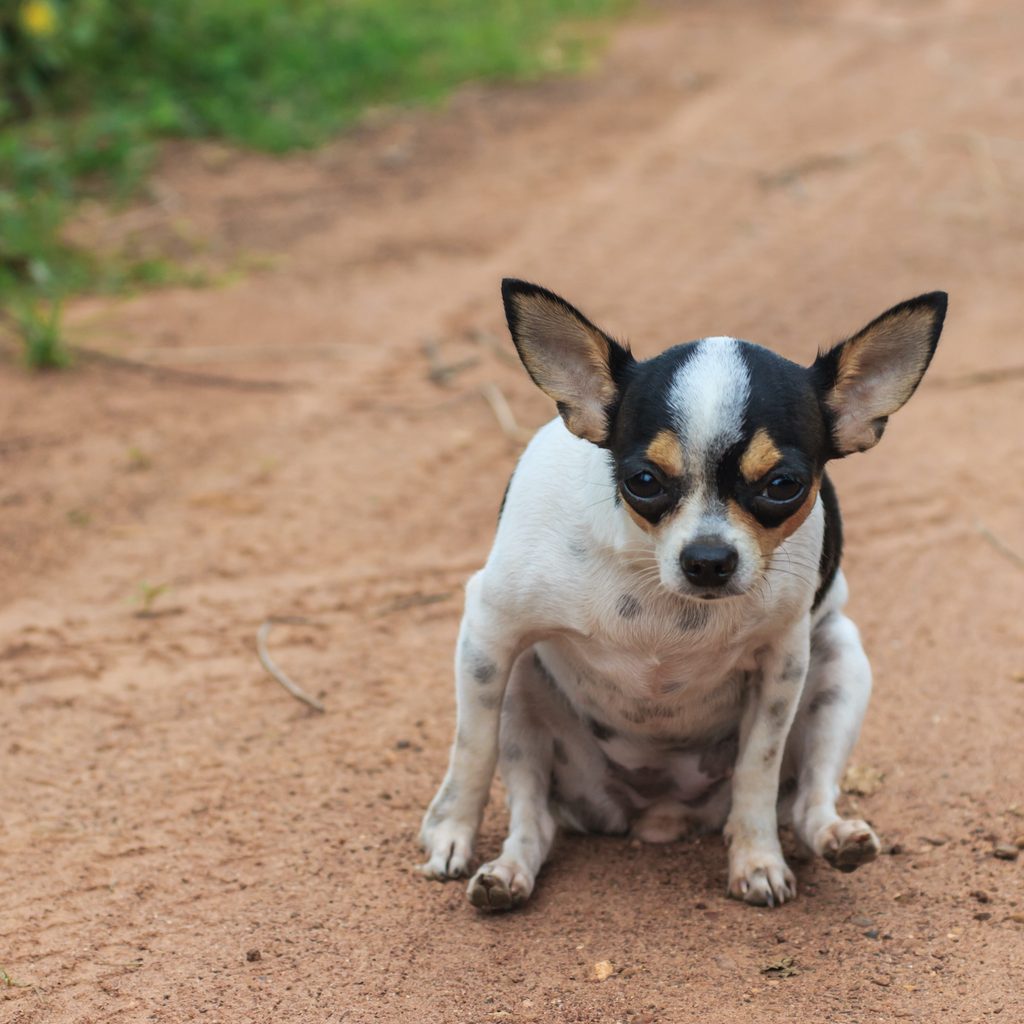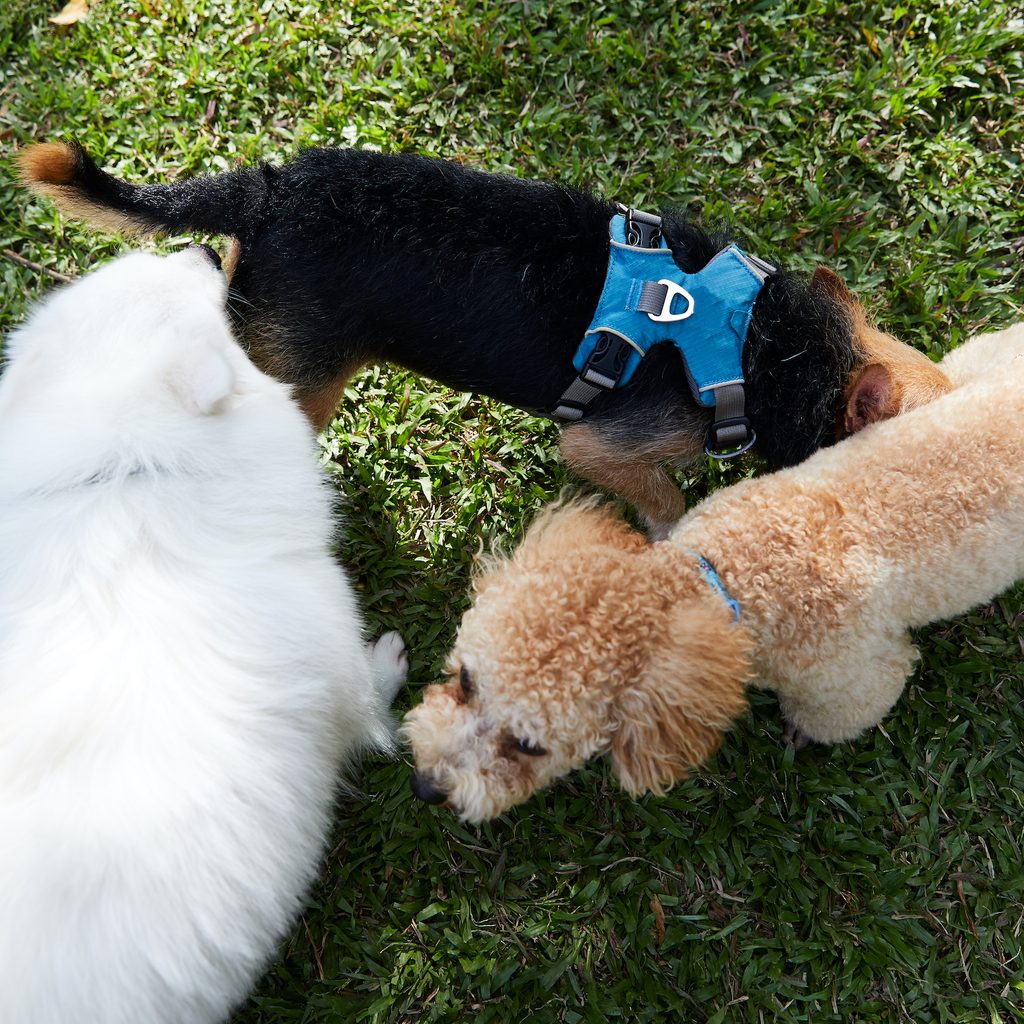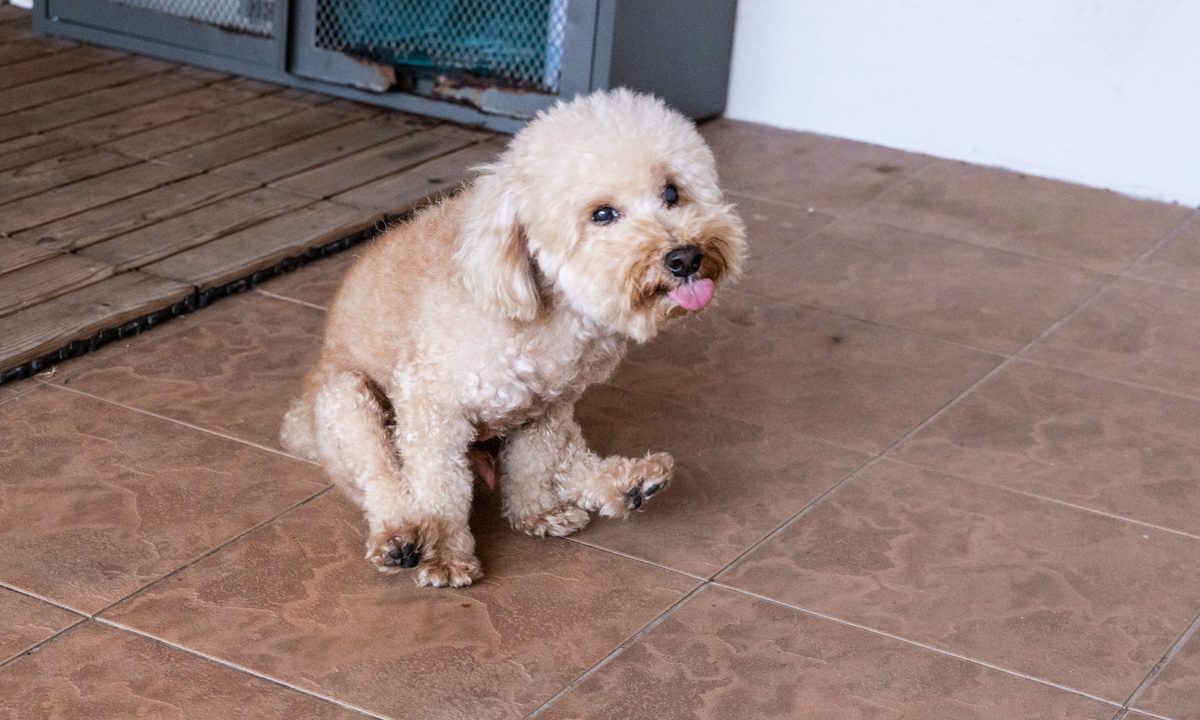There’s no doubt we love our dogs, but there are a few behaviors no pet parent wants to see. Butt scooting is likely at the top of everyone’s list, but did you know it’s more than an unsanitary way to scratch a doggy itch?
When a pup drags their butt along the floor, it’s likely an indicator of a problem you can’t see, like impacted anal glands. Looking for a few telltale signs might help you narrow down the issue, but you may have to consult a medical professional to get your fur baby the proper treatment.
In this article, we’ll answer the following questions:
- Does a dog butt scooting indicate a problem?
- Why do dogs drag their butts?
- When should you contact your vet?
Read on to learn everything you didn’t want to know about the art of butt scooting. Soon, you’ll be able to help your pup — and yourself — get some much-needed relief from this unpleasant habit.
When could butt scooting indicate a problem?

Even though Fido may look like he’s loving the feeling of dragging his butt across the floor, he’s not doing it for any old reason. Unfortunately, notes Dr. Mike Paul, DVM, this odd behavior is almost always due to some kind of discomfort in the bottom.
You should keep an eye on your dog, and maybe consider giving their behind a look-over, the first time you see them dragging their rear across the floor. If the reason isn’t obvious, or if the problem continues, your veterinarian will be the best person to guide your next steps.
Why do dogs drag their butts across the floor?

Now that you know your furry friend isn’t doing the booty scoot just to embarrass you, or because it feels good, you shouldn’t feel guilty for your pup’s bottom-dragging. Instead, it’s time to take action. Let’s learn about the causes of butt scooting, so you can help stop it dead in its tracks.
Skin irritation, itching, or fur matting
Butt scooting can be a sign of matted fur or skin irritation, especially after grooming. Pups who frequently visit the groomer may experience razor bumps, nicks, or even itching from a certain shampoo. Surprisingly, even allergies can result in itching around the bottom. Luckily, these problems are pretty easy to spot — gently lift their tail and take a look.
If your dog is scratching other parts of its body, a product may be the culprit. The American Kennel Club lists warm compresses and oatmeal-based products as a few soothing options that may provide relief.
Clogged anal glands
Time for an anatomy lesson: Dogs have two small sacs — one on either side of their anus — that release an oily, scent-filled liquid during every bowel movement. Not only does this liquid act as a lubricant for stool to pass, but it also contains vital scent information that dogs seek from one another, according to Hill’s Pet. This is what they’re sniffing when they meet a new friend face-to-butt.
Sometimes, these glands can get clogged up if bowel movements aren’t large or solid enough to help release them. For the most part, impacted anal glands are only uncomfortable, but they can cause medical complications if left untreated for too long.
To help your pup with impacted anal glands, make an appointment with your veterinarian. Some dog groomers are also trained to express these glands, but may not be equipped if the glands are infected or abscessed.
Tapeworms
No one likes to hear the word “worms” but it can be an unexpected reality for many pets at some point in their lives. Dr. Paul lists tapeworms as a common cause for itching and irritation around the anus, which can eventually result in a good, itch-relieving scoot.
You may be able to see tapeworm segments in your dog’s feces, but your veterinarian will be the best equipped to diagnose this. Although it sounds like a big problem, or maybe just an unsettling one, it can usually be cured through one or two rounds of praziquantel, a prescription deworming medication. Dr. Paul warns against over-the-counter worm treatments, as most are not consistently effective against tapeworms.
Is there a home remedy for dog scooting?

While you should always consult your vet, there may be an easy fix for your pet’s booty problems. Assuming it’s just a routine anal gland issue, you can try a compress, a change in diet, and a supplement. First, give the heating pad a shot using boiling (but slightly cooled) water on his bum through a wet cloth or hot water bottle. Most likely, he’ll enjoy sitting on a warm surface for a few minutes.
Next, talk to your vet about special food that might help alleviate the scoot, including switching from wet to dry. Lastly, a daily probiotic could work wonders on your pet’s backside. It will assist with firming up the stool and moving everything through his system in a timely fashion.
Don’t dismiss butt dragging

Next time you catch your furry friend in the act of scooting across the floor, don’t stop them just for the sake of your carpet. Make sure to take a look under their tail or let your vet know what’s going on — your dog will surely thank you!




